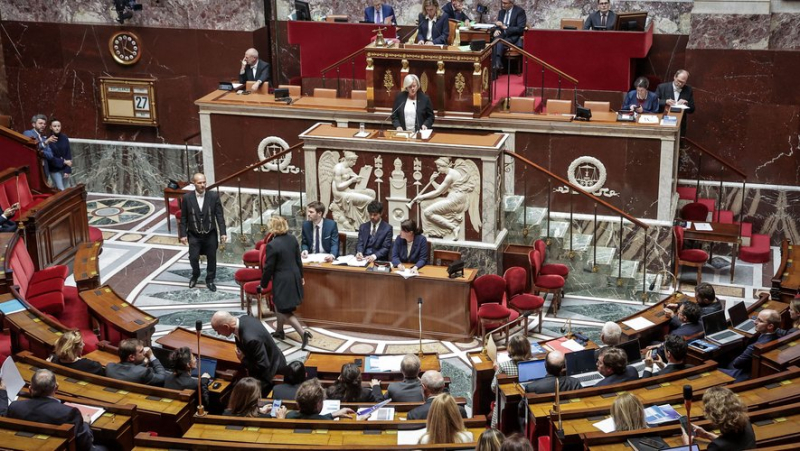End of life: the National Assembly validates the principle of assistance in dying, but prohibits the patient's relatives from carrying out the lethal procedure

L’article 5 a été voté, jeudi, par 88 voix, contre 50. MAXPPP – CHRISTOPHE PETIT TESSON
Although they voted for the text, the deputies refused on Thursday to allow a relative of the patient to administer the lethal product. The National Assembly is now examining the criteria which give access to assisted dying.
This was one of the most sensitive points of the end-of-life bill, which has given rise to intense debates since May 27 within the hemicycle, at the National Assembly.
The deputies adopted, Thursday, by 88 votes to 50, article 5 which aims to define and establish assistance in dying in France. But after removing the possibility given to a loved one to administer death to the patient.
This scenario was planned by the government, in the event that the patient would not be able to administer the lethal substance himself.
Two options were then planned. The intervention of a volunteer caregiver, doctor or nurse. Or that of an adult of their choice having agreed, here too, to carry out this gesture.
"Out of love, out of compassion"
It is this last possibility which was removed on Thursday by the National Assembly, by one vote (43 against 42).
"I do not see myself, personally, prohibiting this possibility", argued the rapporteur Olivier Falorni (Modem), evoking a "final act" that can be done "out of love, out of compassion".
For the socialist Stéphane Lautrette, allowing a loved one to make this gesture, "it’is also a way of mourning".
But doubts had appeared, even in the ranks of the majority, on this subject touching on the intimate. A breach into which the right rushed.
"Heavy to carry"
"Whether the loved one, out of love, agrees to do this act or refuses, in both cases it will be extremely heavy to carry", defended Annie Genevard, general secretary of the Les Républicains party.
After voting, on May 31, to remove the possibility of including a request for assistance in dying in advance directives, the deputies modified this key provision of the text, in order to guaranteer "adequate medical supervision", as proposed by MP Christelle Petex (LR).
The government nevertheless leaves itself the possibility of reopening the debate on this subject.
"A French model opens for patients"
But, beyond that, "the National Assembly has just adopted article 5 of the draft law on support for the sick and the end of life, greets the Minister of Health, Catherine Vautrin, on the social network X. The national representation has spoken out in favor of opening assistance in dying. The President of the Republic was committed to this, a French model is opening for voluntary patients who are going to die and whose suffering cannot be relieved."
And to add: "We are continuing our debates while respecting and listening to everyone's positions." They promise to be just as tense with the start of the examination of article 6 of the bill. MEPs are now looking into the precise criteria allowing access to assisted dying.
Who will have access to assisted dying ? The criteria in question
Article 6, examined in this article now by the deputies, concerns the conditions of access to help & die. According to the validated text in committee, the person must "&be at least 18 years old, be of nationality& oacute; French or residing in a stable and regular manner in France, being affected by a serious and incurable illness in the advanced phase. or terminal, present physical suffering, possibly accompanied by psychological suffering linked to the illness. this condition, which is either refractory to treatment or unbearable when the person does not receive treatment or has chosen to stop receiving it, ;be able à manifest one’s will in a free and clear way. The government wishes to return à the initial version of the bill which limits this act to adult patients whose "vital prognosis" is involved "à short or medium term" and who manifest it "willé in a free and enlightened manner. While some MPs also want to be able to take advance directives into account when a patient is no longer able to express their wishes& ;eacute;.




